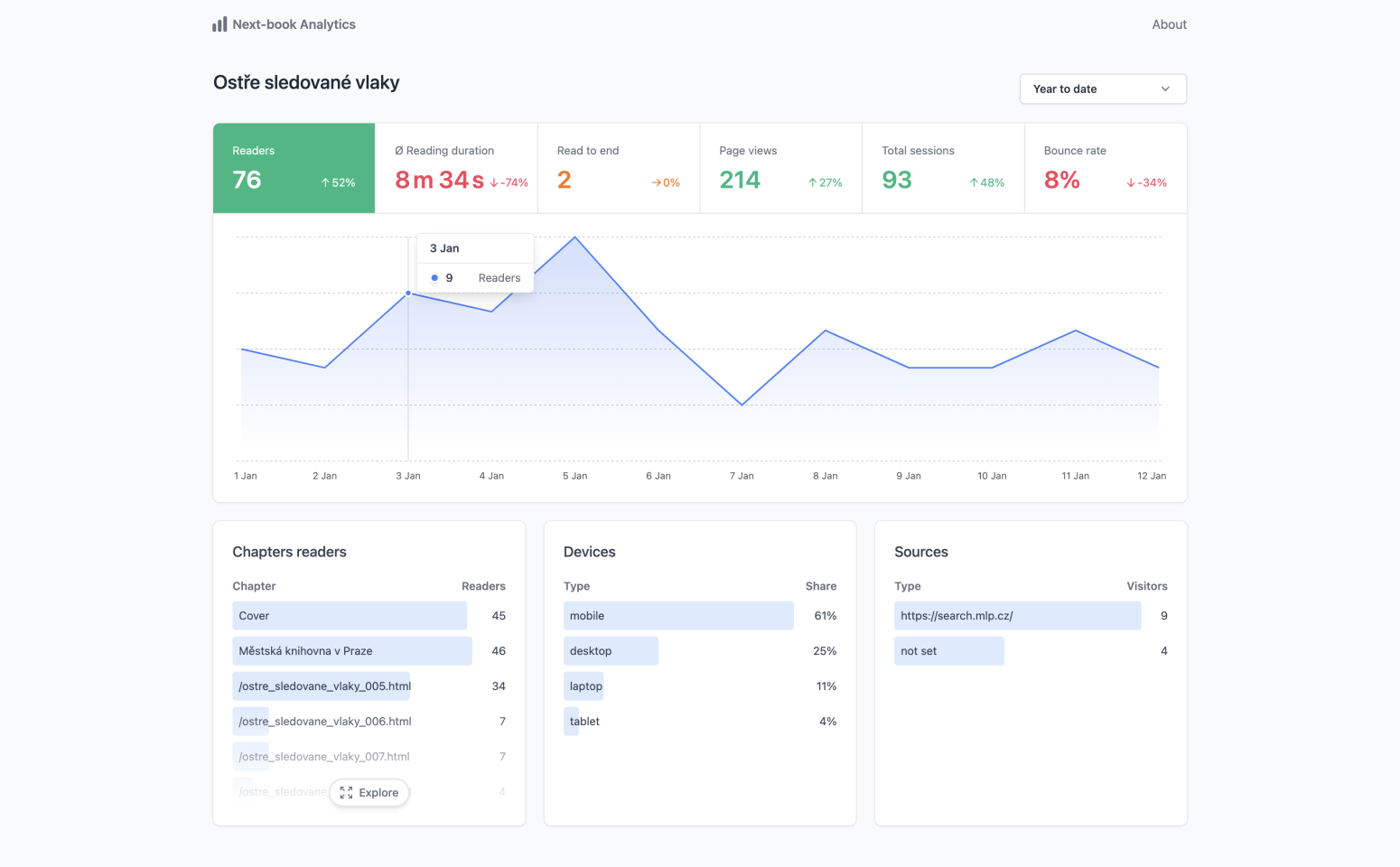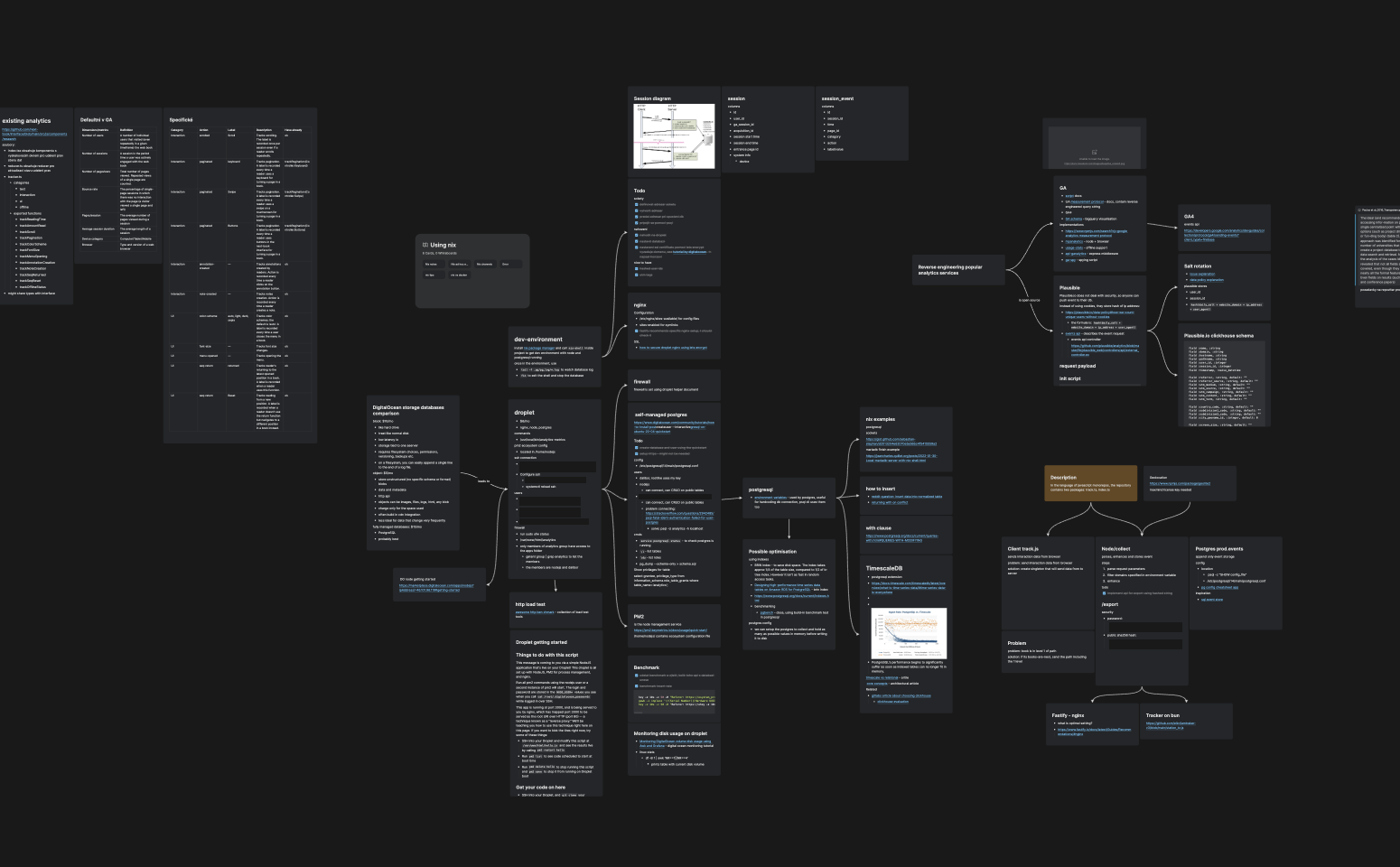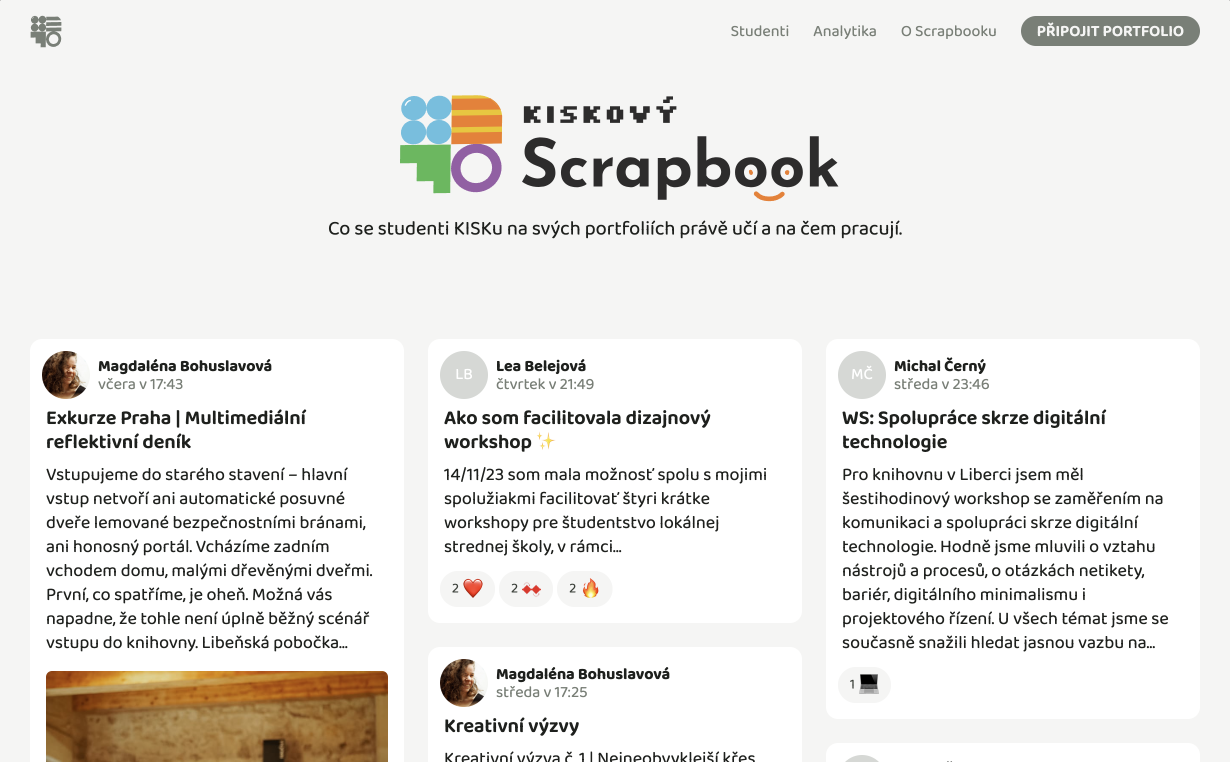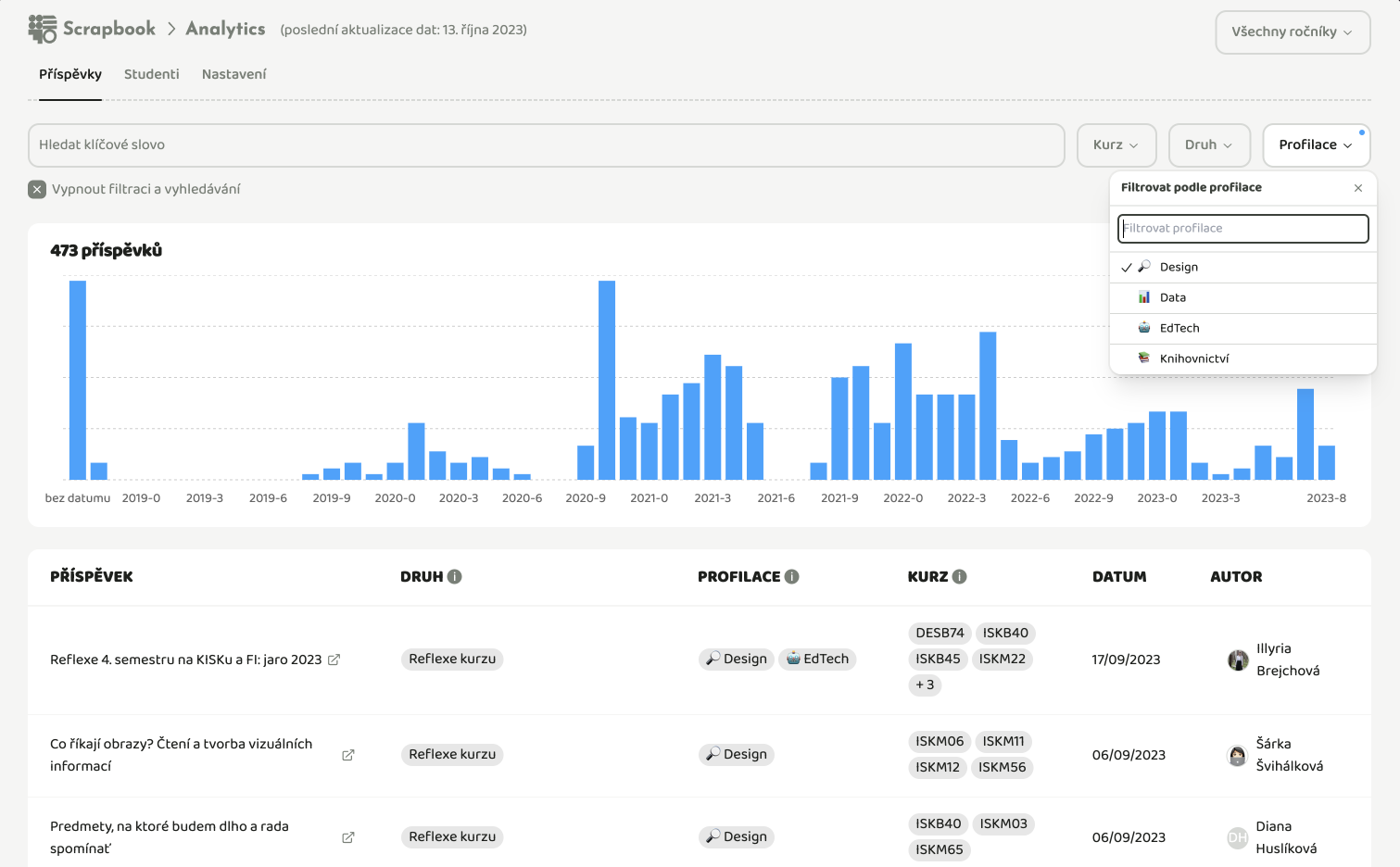Master’s studies at KISK
My motivation
I began my studies at KISK (which is information science oriented programme) based on my interest at UX design at secondary school. At the time, I was keen to learn more about humanly aspects of design, which I felt were missing in my previous studies. At the same time I knew I love all kinds of engineering, but mostly software. Information science seemed like a perfect fit for me, as it was a combination of both, however I only later found out that the STEM aspect which I cannot forego, is not as represented in the field given its history in Librarianship, so I had to saturate my needs elsewhere. As I continued my studies, I realised that I spend little time really understanding what arts and hummanities studies are about. The feeling of not understanding enough was one of the reasons why I sticked to it - to find out.
Another driver of mine was that the department began to shape their course offerings based on several study profilations, one of which was EdTech. As a genuine fan of learning and technology, I was excited to see how the field of education is being shaped by technology and how I can contribute to it since my primary school, when I developed applicatios to serve my schoolmates, and later on for school’s needs. What I was mostly interested about was how to make learning more accessible and more fun, and how to make it more efficient, because I love efficiency at scale. I realised I fooled myself with many assumptions about technology in education. Apparently education is not simply scalable. It is not easy to share how tough lesson it was for me, I learned the hard way.
Over time I realised that I no longer want to attend classical courses that focus on EdTech and I devoted more and more time on topics from other study profilations, such as data analytics, and also design which was my original interest. When I joined the masters study programme, I thought there is little that I can learn about design, since I self-studied design, including design theory back in high school. Fortunately, recent courses on design introduced me to critical approaches to design, which is a fresh perspective for me, since design as I knew it from practice was mostly about solving problems, and did not challenge the status quo of our world. Learning about various approaches to design also turned out to be very connected to a more philosophical approaches to design. I was happy to see that I can deepen my knowledge and use what I self-studied in philosophy to feel more grounded in the design theories. My final thesis was my first attempt to combine critical design perspective with my interest in open source, community infrastructures, project based learning, open science and science infrastructures.
Selected tangible contributions
Bellow I list some of my tangible contributions to the department and the community.
Analytics for Web Based Books
Next-book Analytics enables to see core reading metrics of web-based books powered by Next-book open platform. Next-book is an open platform for publishing and reading on the web. If you ever wondered how could books that truly utilise the potential of web platform might look like, go see Next-book. Every book is a standalone website, utilizing the core ideas of the web technology for good reading experience.
I am happy that I was able to contribute to the project by developing the analytics tool, which is a standalone web application integrated to the Next-book platform. During the development, I learned a lot about the web platform, web reading experience and database engineering. I devoted quite a lot of time to research the best practices for web analytics, and I am really happy with the result.
 A sample book statistics in Next-book Analytics
A sample book statistics in Next-book Analytics
 My research on the project’s scope, software architecture and database design
My research on the project’s scope, software architecture and database design
Scrapbook: A Student Portfolio Aggregator and Analytics
The goal of the project is to address the needs of KISK students in mutual sharing of the study path and self-presentation. On KISK’s Scrapbook we collect scraps from our individual study paths shared on student portfolio web pages, and present them in a single platform. Thanks to mutual sharing, we know what others are working on and can support each other. The platform also helps potential students to see whovthe actual students at the department are and what they do. In the long term, we would like to develop more tools to support students in their study path, foster collaboration and support reflective learning, and make teacher’s work more efficient. Scrapbook is a standalone project based on the Hack Club’s project of similar purpose and the same name.
I was able to contribute to the project and be it’s main developer. Working on the project had helped me to collaborate with my peers with a useful goal in mind. Scrapbook is a good example of a project that had been executed fast and sparked a good discussion with my peers.
 The homepage timeline of Scrapbook
The homepage timeline of Scrapbook
 The analytical page with quick stats and post filtering
The analytical page with quick stats and post filtering
Thesis: Community Open Projects Infrastructure: Towards Collaborative Research Projects
My thesis explores the concept of Open Science through the lens of Open Processes, emphasizing their role in fostering research transparency for collaboration and participation of public actors. The study introduces interventions aimed at promoting Open Processes within the local academic context at the Department of Information and Library Studies, Masaryk University, focusing on project observability, community participation, and the opening of research processes. The interventions reveal valuable insights regarding students' perspectives, research project dynamics, and the technological stack used. Key findings indicate the significance of aligning incentives for student participation and minimizing friction for researchers. At the very end, a Community Open Projects Infrastructure is proposed by seeking to merge public observability and discoverability with internal project management.
I was happy to work on a final project that connects my interests as I pointed out before. The thesis is a result of a long process, and my first ever experience with applying Research through Design methods and critical design framing. I choose this methodology because it helped me to navigate a teritory in which I was not an expert. I was able to sketch out problem space, value orientation and technological drivers which should be considered when thinking about Open Science. On this, I performed a series of interventions to learn more about the problem space, and open up to new perspectives.
 You can download the thesis PDF, or see my defense deck (+ alternative link).
You can download the thesis PDF, or see my defense deck (+ alternative link).
Required courses
In case you are interested in the mandatory path of the study programme, I list the courses I attended and my personal reflections on them.
Information Sciences
This course was an introduction to the field of information sciences. Because I already attended courses on the same topic, and read several books on the field, I assumed I wont learn much. However, the facing the topic in a different variation of selected sub themes of the field, and a change in life context, I actually was able to find new insights and connections. For example, discussion about social dimensions of technology and systems has been benefinial for me. If the course focused solely on this, it would be optimal for me.
DISRI
An introductory course to human centered design and service design. I was aware about most of the topics discussed in the course from my self-study, so I decided to use the course to dig little bit deeper on them. I focused on knowing and understanding less popular design methods, getting to know the history of the discipline and learning to explain the topics to uninformed public.
Literature, market and library processes
Literary courses are among the most distant from my academic interests. While I love spending time with literature, framing the courses contents to my personal study path has been difficult. In was this course which led me to setting myself a challenge. I decided to think about what questions could I, and should I, ask to find ways to discover new things that I could be intererested in. Starting from this course, in each lesson I tried to compose few questions on the topic presented.
Literature, Culture and Humanities
Similarly to the previous field, I struggled to connect to its overal contents. In some lessons, I was able to get the right framing and motivation to appreciate the discussion but overall I lacked my personal connection to truly dive into the course. It seems that the people with more literary background had enjoyed the course more but given my background this was very tough for me. Although, I did explore few topics of my personal interests, namely the work of Czech philosopher and antropologist Jan Sokol to which I was introduced in different course.
Learning society
Learning society is the only mandatory course related to the EdTech profilation. There are two important aspects of this course. First, the syllabus for the semester was composed by democratic vote of the students in which we could propose topics we would like to explore. Although the topics proposed didnt make it to the syllabus, it was a fresh air to the usual top-down approach. Second, the course followed flipped classroom method in which students prepare before the session with discussion. I like these kinds of seminars. The course sessions were often very generalist, so most of traditional "learning" happened outside of the classroom. The topics I dive into were: learning in online communities, creativity, intercultural competences, micro-credentials and collaboration analytics. This course has challenged me to work with different sources syntopically.
Librarian English
This course was a sad experience for me. I dont think I learned much from it, even though I really tried. The reason is that the original teacher couldnt continue with the course. The substitute teacher had little time to prepare and the result was tragic. If I would be in the same situation again, I would offer a help to the teacher with choosing study materials.
Information Behavior
Information behavior is one of the closest courses to the field of LIS. I personally became more interested in the topic of information behavior and information practices after discovering a list of human-centered software engineering dissertations on GitHub. Reading research on optimizing IDEs and software related topics gave me the right motivation for this course wich stayed with me long after. I would like to note that the course lessons were prepared very interestingly as it presented various theories and research findings without special effort to provide a single unified storyline to deliver the facts. This is my oppinion as it appeared to me and I find it interesting. I read a number of papers on information behavior, communities of practice, metacognition and HCI. Learning about communities of practice and reading bunch of papers on the topic, and seeing its usage in theoretization of online communities has helped me a lot when thinking about my diploma thesis project.
Information policy and management
One of the most promising courses in the study programme. Its a pitty we only had one semester to explore the topic. Having a decent overview from IT and software engineering I feel I appreciated most of the lessons but I was also hungry for more. I self-studied data-related infrastructures and technologies parallel to the course. If we only could dive deeper in this!
Literature and Cultural Area
A literary course which applied literary science methods to study how different cultural areas affect each other. This course seemed like a perfect fit for literary content curators or people who want to practice collecting and working with sources, mostly in literature. For me personally, it seemed like an reassurence that information curators are likely to need additional context information to really distill whats important. Its not just about manipulating with information at hand. Why is it important? In the LIS field, we often hear that decent digital competencies and information literacy gives us strong basis to research any field. Its one of the dreams of LIS students, that they might be able to operate in any environment after acquiring the foundational skills. Well, this course has showed us that its actually needed to be professionals in the fields where we want to apply information science methods.
Organization of Knowledge
I find knowledge organization as a very central part of LIS. In my view, KO actively unites user needs, linguistics, philosophy of science, etics, ontology and epistemology. Having decent knowledge from self-studied semantic web and expert systems and machine learning turned out as a great advantage for me in this course together with being able to connect the course to my interests. Finishing the course has been a challenge because of personal life struggle. However, thanks to the thanks to the stubborn approach of the teacher, I was given extra time to compensate for missed weeks. In the end, I was able to devote the final thesis to a topic which was challenging for me at the time and I did it with a great joy. In the thesis I wanted to argue that the field of knowledge organization must acknowladge mathematical representation of knowledge as real (see Mathematical Realism). I am quite happy with the result essay, you can read the essay called Seeing the invisible in the organization of knowledge. Unfortunately its written in czech. The essay writeup had assured me that I can write much better in my native language than in english, for now :).
Thesis Seminars
While I generally like the idea of scaffolding the work on diploma thesis by providing students a course which divides the process of thesis wiriting by semester, it turned out not completely productive for me, but somehow helpful. The reason is that I approximately knew the topic in which I was interested for my thesis, but I was on the path to narrow it down and iteratively see what works for me and what I find useful and fun. The course did not helped me contentwise, but because the teacher had communicated deadlines for each phase of the thesis writing process, it helped me to keep the pace and be responsible for actually working on the thesis throughout the studies. The scaffolding, thus, had definitelly helped me, even though I did not commpleted each writing phase as ideally as the courses had suggested. I completed most of my writing in the last months of the studies, but at the time I already had a reasonable amount of materials to write confidently and enjoy the process. The course was not the only support for me in the thesis, for example I attended several meetings with peers, like-minded institution, and seminar for design oriented students writing their thesis. Seeking help from others in advance, before I even felt I need it was very important for me and I would recommend it to anyone.
My short takeaway
When my favourite childhood teacher asked me what I would like to study at university, I told him I am interested in learning about learning and about machine learning. I am happy that I was able to study both either in self-study or at school. Studying at KISK had been an interesting experience - I got a space and a community to dive into my interests with. One of my biggest takeaways is that I learned to function more critically and effectively when diving into new topics. I think I gradually build better intuitions and strategies to work with information and think about my own opinon on them. I also learned I dont need to be critical about everything, sometimes, it is better to just enjoy the ride and vibe.